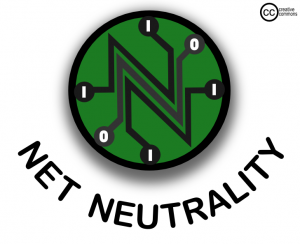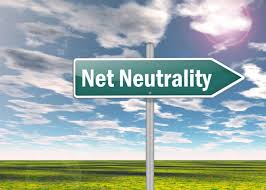The debate on net neutrality has gained momentum on social media. It has become one of the most trending issues on facebook, twitter and other forms of social media. So, what is “Net Neutrality” and how will it change the way we use the internet? Net Neutrality is a principle which says that internet service providers (ISPs) should provide us with open networks and and should not discriminate against and charge all websites and users the same amount for internet service. To put into simple terms, be it a Khan Academy video or a trailer of a bollywood movie, all data should be equal and an internet service providers should not discriminate against it. ISPs cannot decide what internet users can access or not. Some ISPs are also planning to charge users differently based on the medium the users are using. This is against the very concept of Net Neutrality. All websites must be accessible at the same speed.
Another aspect in Net Neutrality is that certain websites are willing to pay more money to ISPs so that the delivery of their services is faster and cheaper as compared to that of their competitors. An example of this is the Airtel Zero Platform. It is an open marketing platform where app makers can register to provide free services to their users. Flipkart supported it initially but due to a widespread outrage on the social media, pulled out of it. Experts believe that such platforms will create discrimination as start-ups won’t be able to compete with the large players as they won’t be able to afford paying the ISPs.
The argument that has been put forward by telecom companies and ISPs is that they built infrastructure and provide bandwidth to the data services like apps and website by investing large sums of money but are not able to make money off the apps and websites. Though, they make money through the data usage. According to the companies, OTT (over- the- top) services like WhatsApp , YouTube,etc. eat into their revenues . If companies have their way with TRAI (Telecom Regulatory Authority of India), users may end up paying more for the same amount of services. For example, if you pay Rs. 100 per month to your ISP for your internet and if net neutrality is scrapped off, then you may have to pay additional amount of money to access OTT services. Though, a Medianama report Mobile Internet in India rubbishes the claims made by the telecom companies. In the case of Airtel alone, while value-added service (VAS) revenue dipped from Rs 1024.85 crore on the third quarter of financial year 2013 to Rs 780.82 crore in the third quarter of financial year 2015, its data revenue jumped three-and-half times from Rs 585.75 crore to Rs 2,108.22 crore in the same period.
The debate against net neutrality is concerning since a large chunk of India’s population is now dependent on internet for a variety of purposes. Internet has become a basic utility if telecom companies have their way, it will adversely affect internet users in one way or other. A few months back, the American telecom regulator Federal Communications Commission ruled in favour of net neutrality. It’s high time that TRAI considers Internet service a utility and enforces net neutrality. It will enable a developing nation like India improved access to Internet.
What can you do as an Indian citizen?
TRAI is seeking the views of all stakeholders by 24th April. As internet users, you can can send your comments to advqos@trai.gov.in to let the regulator know what is your stand on the issue. You can also log on to www.savetheinternet.in and send the responses to the 20 questions asked by TRAI. It is a 2-click process. Remember, the deadline to this process is 24th April. The ease with which we access the Internet today will fly out the window if we don’t act quick.
Click here for government certification in Information Technology





3 Comments. Leave new
Good one!
very well codefied 😀
GOod work 😀
Prettying intriguing.. Nice work!